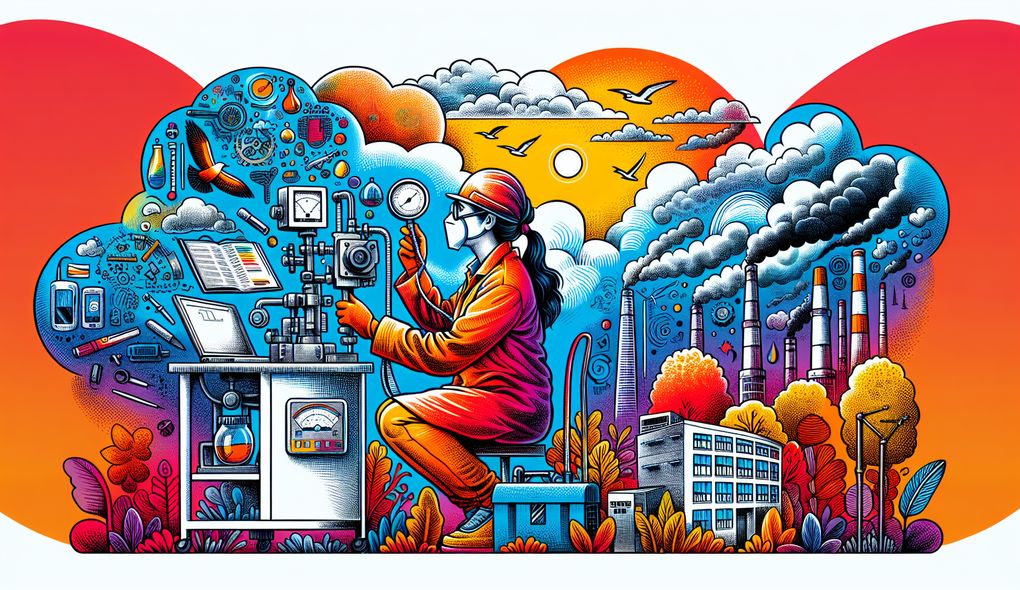How do you approach analytical and problem-solving tasks?
SENIOR LEVEL

Sample answer to the question:
When approaching analytical and problem-solving tasks, I first gather all the necessary information and data related to the problem. I then analyze the data and identify patterns or trends that can help in finding a solution. I use my strong analytical skills to break down the problem into smaller parts and prioritize them based on their impact. I also leverage my problem-solving abilities to brainstorm different solutions and evaluate their feasibility. I believe in involving others in the process and seek input and feedback from colleagues or experts in the field. Collaboration and teamwork are important to me in finding the most effective solution. Finally, I communicate my findings and recommendations clearly and concisely, ensuring that all stakeholders understand the problem, the solution, and the expected outcomes.
Here is a more solid answer:
When faced with analytical and problem-solving tasks, my approach involves a structured and systematic process. I start by thoroughly understanding the problem at hand and clarifying any ambiguities or uncertainties. This involves gathering and analyzing relevant data, conducting research, and consulting relevant resources or experts. I then break down the problem into smaller components, identifying key variables and relationships. This helps me to prioritize the most critical aspects and allocate my time and resources effectively. I make use of analytical tools and frameworks to organize and evaluate the available information, enabling me to identify patterns, trends, and potential root causes. Collaborating with colleagues or subject matter experts is essential to gain different perspectives and insights. I believe in the power of brainstorming and generating multiple solutions. To evaluate these solutions, I consider their feasibility, effectiveness, and potential risks or limitations. I also apply critical thinking to anticipate potential obstacles or unintended consequences. Once I have selected the most viable solution, I develop a detailed implementation plan, taking into account the necessary resources, timelines, and potential contingencies. Throughout the process, I value open and effective communication, ensuring that all stakeholders are well-informed and engaged. I provide regular updates on progress, seek feedback, and make adjustments as needed to optimize outcomes.
Why is this a more solid answer?
The solid answer provides a more detailed and comprehensive approach to analytical and problem-solving tasks. It includes specific steps and strategies the candidate employs, as well as mentions of collaboration and communication. However, it could benefit from further elaboration on past experiences and examples to showcase the candidate's abilities in the evaluation areas.
An example of a exceptional answer:
Analytical and problem-solving tasks require a holistic and strategic approach, which I adopt by combining technical expertise, critical thinking, and collaboration. Firstly, I meticulously gather and evaluate all available data, ensuring its accuracy and relevance. This includes conducting experiments, performing statistical analysis, and utilizing specialized software. To establish a solid foundation, I draw upon my deep knowledge of prevailing industry standards and best practices. Next, I adopt a systematic problem-solving framework, such as the PDCA (Plan-Do-Check-Act) cycle, to embrace a continuous improvement mindset. By identifying the root cause(s) of the problem, I can propose targeted and effective solutions. I prioritize these solutions based on their impact, time constraints, and available resources. I leverage my strong computational and modeling skills to simulate and predict the outcomes of various scenarios, highlighting potential risks and opportunities. Collaboration is key throughout the process, as I actively seek input from cross-functional teams and stakeholders. By combining diverse perspectives and expertise, we can collectively arrive at innovative solutions. Additionally, I utilize my excellent communication skills to convey complex concepts in a clear and concise manner, enabling buy-in from decision-makers and encouraging cross-team participation. Regularly monitoring and evaluating the implemented solutions allows me to make data-driven adjustments and iterate on the problem-solving process. Overall, my approach facilitates the efficient resolution of issues and lays the groundwork for long-term success.
Why is this an exceptional answer?
The exceptional answer provides a comprehensive and detailed approach to analytical and problem-solving tasks. It showcases the candidate's technical expertise, critical thinking skills, collaboration, and communication abilities. It also highlights their ability to leverage industry standards and best practices. The answer stands out due to the inclusion of specific methodologies and frameworks, such as the PDCA cycle, as well as the candidate's capacity for innovation and continuous improvement. However, it could further benefit from specific examples or stories from past experiences to demonstrate the candidate's exceptional capabilities in the evaluation areas.
How to prepare for this question:
- Familiarize yourself with common problem-solving frameworks, such as PDCA, 5 Whys, or Root Cause Analysis.
- Develop your analytical and critical thinking skills by practicing exercises or puzzles that require logical reasoning and data interpretation.
- Study industry regulations and guidelines related to air quality monitoring and analysis to demonstrate your knowledge and commitment to compliance.
- Prepare examples from past experiences where you successfully applied your problem-solving abilities and collaborated with others to achieve impactful solutions.
- Practice communicating complex concepts in a clear and concise manner, particularly in written reports or presentations.
What are interviewers evaluating with this question?
- Analytical skills
- Problem-solving abilities
- Collaboration
- Communication

